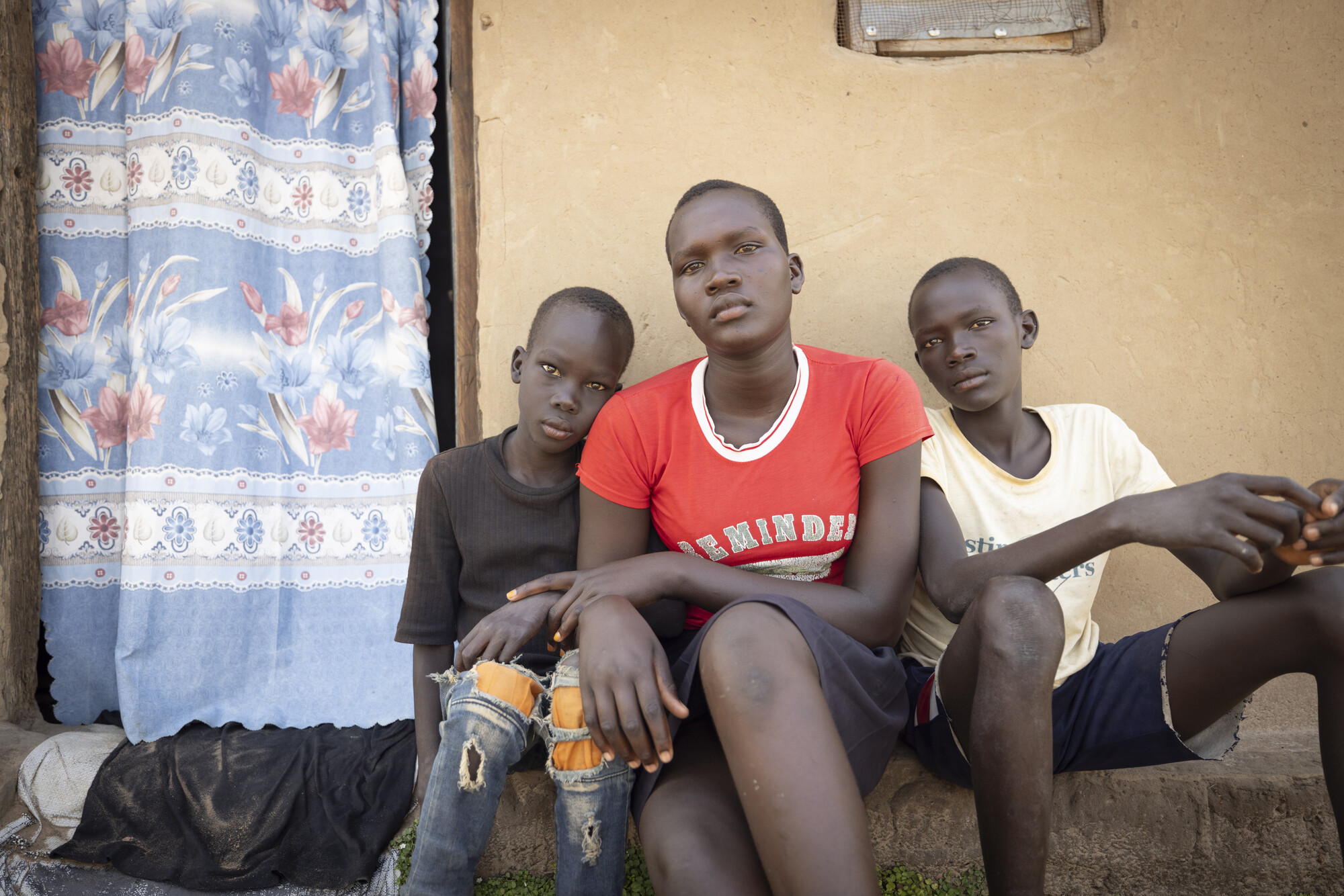The concept of home is something that most of us take for granted. But for 125,000 refugees and asylum seekers living in the Palorinya Refugee Settlement in northern Uganda, it’s something they have had to fight for. These families have fled conflict and upheaval in neighboring South Sudan, seeking safe haven in the settlement. Here, they are assigned a plot of land to build a home and grow a small vegetable garden. However, life is far from easy. Many child-headed households exist in the settlement, as caregivers leave to find food or work elsewhere. Even adult caregivers often venture outside the camp to search for their livelihoods, leaving children vulnerable to gender-based violence and violations of their rights.
ChildFund is working to address these challenges by providing child-friendly spaces for children and youth, and by training community leaders on gender-based violence and child protection issues. The spaces are fenced-in compounds with classrooms, improved toilets, and playgrounds, providing a safe place for children to learn and interact. To create awareness around GBV and child protection issues, ChildFund has established and trained Male Action Group committees and disseminates information over the radio.
Rose is one of the many children who have benefited from ChildFund’s work. She arrived in the settlement with her mother and two younger brothers after her father was killed in South Sudan. However, soon after their arrival, her mother abandoned them, leaving Rose to become the caregiver for her siblings. The family receives small food rations from WFP each month, but it’s never enough to keep them well-fed. Rose had to start working odd jobs like washing clothes, farming, and fetching water to provide for her siblings. She couldn’t attend school like other children her age, but she worked hard to ensure that her brothers could go to school. Two years ago, Rose had a visit from her local Male Action Group, who encouraged her to return to school. They told her that staying at home during school days was not good and that children should go to school to help themselves, their parents, and their future. After some discussions and meetings with the school headmaster, Rose agreed to start school in Uganda.
The Male Action Group continues to visit Rose and her brothers, encouraging them to value themselves and their future. As a refugee himself, Andrew Kaya, a member of the Male Action Group, knows the challenges that Rose and her family face. He and his group provide moral support and encouragement, but they are not able to provide physical aid. However, when they saw that Rose and her brothers were sharing a one-room house on the same mattress, they knew a second house was needed for Julius and Brian. The Male Action Group decided to construct another house for the family, providing more privacy for Rose. Rose’s story is just one of many in the Palorinya Refugee Settlement. However, it shows the resilience and determination of refugees to create a better future for themselves and their families.


